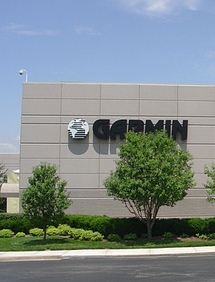Archive for March 18th, 2010

Gunmen rob gas station
 (CNS): Three hooded armed robbers targeted Delworth’s Esso gas station in North Church Street, George Town early this morning police have confirmed. George Town detectives are now investigating the armed robbery which took place Thursday 18 March shortly after 5.00am. Three members of staff were working within the service station when three hooded men entered the premises. One of the men was carrying what appeared to be a firearm. The men threatened staff before making off with the cash register from the store. They were last seen running behind the service station.
(CNS): Three hooded armed robbers targeted Delworth’s Esso gas station in North Church Street, George Town early this morning police have confirmed. George Town detectives are now investigating the armed robbery which took place Thursday 18 March shortly after 5.00am. Three members of staff were working within the service station when three hooded men entered the premises. One of the men was carrying what appeared to be a firearm. The men threatened staff before making off with the cash register from the store. They were last seen running behind the service station.
Police said that no shots were fired and no-one was injured in the incident. The suspects are all described as wearing dark coloured jeans and black long sleeved hooded tops. They all had light complexions and spoke with Caymanian accents.
Detective Constable Colin Pryce of George Town CID is appealing for anyone who was in the area of the service station around the relevant time and witnessed the robbery or the suspects fleeing the scene to come forward. Anyone with information should call George Town police station on 929-4222 or Crime Stoppers 800-8477 (TIPS).

Police charge woman over alleged dog theft
 (CNS): Former MLA candidate, talk show host and local activist Sandra Catron has been charged with the theft of a dog after what she says was a genuine canine rescue. Catron told CNS that she is outraged by the charge and will be engaging in a public demonstration as she insists the dog was not stolen but rescued — a claim she says is backed up by her numerous attempts to find the owners through advertising and other means as well as reporting the rescue of the dog to the RCIPS. Police now appear to have taken official action and have pressed charges against Catron, who has said no jury could ever convict her and that the case is a demonstration of the incompetence of the local police.
(CNS): Former MLA candidate, talk show host and local activist Sandra Catron has been charged with the theft of a dog after what she says was a genuine canine rescue. Catron told CNS that she is outraged by the charge and will be engaging in a public demonstration as she insists the dog was not stolen but rescued — a claim she says is backed up by her numerous attempts to find the owners through advertising and other means as well as reporting the rescue of the dog to the RCIPS. Police now appear to have taken official action and have pressed charges against Catron, who has said no jury could ever convict her and that the case is a demonstration of the incompetence of the local police.
Catron is not only furious over the charges brought by the police, branding her a criminal when she says she was trying to help, but she is alsoupset that her new four-legged friend, known as Precious, is now caged at the Agricultural Department after the police seized it this morning (Thursday 18 March).
The dog, which she says needed considerable veterinary attention when she discovered it, was in her possession for more than two weeks before the owners came to say that they believed the animal was theirs. Catron stated that she considered returning the dog and waiving her legal right to keep it per The Animal Law (2003 Revision). However, after speaking with the owner she became concerned about the care that Precious would receive based on statements that were made.
The police reportedly refused to accept Catron’s claim that the dog had been neglected and was in need of any kind of medical attention, even though it had been seen by a local veterinarian. She said police told her that the vet was not the Cayman Islands’ official vet, despite the fact it was Dr Alfred Benjamin, the Agricultural Department’s former chief veterinary officer for some twenty years and now in private practice, and therefore they would not accept it.
Catron is also shocked by the RCIPS claim that she had never reported the dog missing, even though she had spoken directly to a police officer on the day she found ‘Precious’.
“I have lost all respect for the police and now understand how some people have been rail roaded by the judicial system,” she said, adding how she could not believe the legal department was willing to spend money pursuing this in the courts. “This is the second time I have been subjected to police harassment and I have real concerns about why the police are pursuing me,” Catron said, adding that it may well be because she has often spoken out about the RCIPS level of competence. “I feel like I am being targeted and I am not going to take this lying down.”
Catron says that she advertised the fact thatshe had found the dog in the free classified sections of both Cayman News Service and Ecay classifieds, and posted the dog’s picture and information on Facebook, plus she notified the Humane Society, spoke to numerous local vets and, above all, as obligated by law, the first thing she did was report the discovery to a uniformed police officer.
She said she walked the dog publicly and on a number of occasions did so in front of the people who later claimed to be the owners. Catron insists that at no time did she ever conceal the fact that she had found, and was looking after, the dog. Precious was, Catron claims, in desperate need of care when she rescued her and she has grown to love the little dog now that she has spent time nursing her back to full health. Categorically denying that this case could even at the wildest stretch be described as theft, she said she will fight the charges every step of the way.

UK tax drives out business
 (Swissinfo): Over the past few months prime British companies and high earners have reportedly threatened to pick up sticks and relocate to Switzerland to avoid rising taxes. From April, a 50 per cent tax rate for those earning more than £150,000 (SFr242,000) comes into force. Britain, which for years appeared to encourage personal wealth, is now being described as a “hostile environment” for the rich. Banks and hedge fund firms have been the main focus of reports about potential company relocations. But at the beginning of March, the chemical manufacturer Ineos announced it was thinking about shifting its global headquarters from England to Switzerland for tax purposes. Britain’s largest privately held company believes the potential saving for the business would be quite significant.
(Swissinfo): Over the past few months prime British companies and high earners have reportedly threatened to pick up sticks and relocate to Switzerland to avoid rising taxes. From April, a 50 per cent tax rate for those earning more than £150,000 (SFr242,000) comes into force. Britain, which for years appeared to encourage personal wealth, is now being described as a “hostile environment” for the rich. Banks and hedge fund firms have been the main focus of reports about potential company relocations. But at the beginning of March, the chemical manufacturer Ineos announced it was thinking about shifting its global headquarters from England to Switzerland for tax purposes. Britain’s largest privately held company believes the potential saving for the business would be quite significant.
Runners wanted for CARIFTA baton relay
(CNS): Members of Cayman’s Haitian community will be running the first leg of the CARIFTA Flag and Baton relay as the event will not only mark the opening of the games but will hopefully raise cash for the beleaguered nation. However, organizers are now looking for local teams to carry the baton from George Town to East End in one mile legs. With the help of these teams the baton will make its way across Grand Cayman to the Truman Bodden Sports complex where the 2010 CARIFTA games will take place.
A team of Cyclists will receive the baton from the last volunteer team of walkers/runners at Vivine’s Kitchen in East End, and ride to the North Side playing field, where another group of runners will then carry the flag and baton over to Rum Point.
Olympian Don Mclean will then receive the flag and baton and carry it by sailboat from rum pointacross the North Sound to Morgan’s Harbour, where it will be handed off to a team of runners who will carry the flag and baton to the home of the CARIFTA Games, the Truman Bodden Sports complex.
Schools, companies, service groups, churches and other organisations are just teams of friends are being asked to get involved in the fundraising event by forming relay teams that can follow the Haitian Team and cover the more than twenty miles to East End from George Town .
To participate in the Flag and Baton relay on Saturday 27 March they need to register the team by next Monday 22 March. The event will start at 7am from the Smith Road oval in George Town, and will proceed toward the Eastern districts. Each team will run or walk one mile with the flag and baton before passing it on.
The registration fee is $10 for groups and $2 for children. Registration forms for The CARIFTA Flag and Baton Relay are available on the CARIFTA website at http://www.carifta2010.ky

Business community to stand up and be counted
 (CNS): All businesses registered with the Economics and StatisticsOffice (ESO) will be required to participate in the annual Economic Survey which starts on Monday. The survey provides information to the ESO so it can compile the System of National Accounts (SNA) and the Balance of Payments (BOP) figures for the Cayman Islands. The office said that these indicators are especially critical in analyzing the impact of the global financial crisis on Cayman’s economy in the past two years and will help business and government plan for the future. Faced with a historical reluctance of people to participate in surveys the ESO is calling on the business community to literally stand up and be counted.
(CNS): All businesses registered with the Economics and StatisticsOffice (ESO) will be required to participate in the annual Economic Survey which starts on Monday. The survey provides information to the ESO so it can compile the System of National Accounts (SNA) and the Balance of Payments (BOP) figures for the Cayman Islands. The office said that these indicators are especially critical in analyzing the impact of the global financial crisis on Cayman’s economy in the past two years and will help business and government plan for the future. Faced with a historical reluctance of people to participate in surveys the ESO is calling on the business community to literally stand up and be counted.
In his recent report which is forming the basis for government’s future economic policy James Miller and his co-authors David Shaw and Kenneth Jefferson criticised the quality and lack of accurate financial data in Cayman stating that it was hindering government’s economic management.
“Government, civic, and business leaders and officials are encumbered in their decision making by a lack of timely, accurate, reliable, and comprehensive statistics on the Cayman economy and society,” Miller stated in his report. Miller noted that the ESO has been hampered by a culture of privacy in the Cayman Islands making it difficult to get much needed data. He also noted a lack of cooperation and communication among Government agencies.
The ESO pointed out the importance of the latest information it is seeking to collect and encouraged businesses to participate as quickly as possible.
BOP data is useful for global investors as it includes the value of direct investment by sector as estimated in a manner comparable across countries. SNA data provide value-added or performance indicators across sectors. Sophisticated users of economic data such as credit ratings agencies have also relied on SNA and BOP data in making their assessment of a country’s economic performance and outlook.
The survey, ESO said is safe and confidential. It will not be made available to any party outside of ESO which will use the survey responses exclusively for the aggregate compilation of GDP and BOP statistics. “Section 17 of the Statistics Law prohibits the communication or publication of information in any manner so that an individual or business may be identified,” ESO said. It also pointed out that the completion of the questionnaire is a legal requirement under the Statistics Law (1196 Revision) and the Statistics (System of National Accounts and Balance of Payments) Regulation 2010. It confirmed every business that receives a copy of the survey next must fill it in by law before 21 May. However, in order to assist in improving the time line of the release of the figures the ESO asked people to return the survey as quickly as possible.

Offshore firm set to leave Cayman for Switzerland
 Shareholders of Garmin Ltd. (GRMN) the maker of navigation devices and global positioning systems will be asked to vote in favour of the board of directors’ unanimous decision to move the company from the Cayman Islands to Switzerland at the next meeting. The company announced that it had decided to change its place of incorporation because of the company’s growing interests in Europe. The redomestication will also be subject to approval of the Grand Court of the Cayman Islands. If approved a new Swiss company, also called Garmin Ltd would replace the existing Cayman company as the ultimate public holding company of the Garmin group.
Shareholders of Garmin Ltd. (GRMN) the maker of navigation devices and global positioning systems will be asked to vote in favour of the board of directors’ unanimous decision to move the company from the Cayman Islands to Switzerland at the next meeting. The company announced that it had decided to change its place of incorporation because of the company’s growing interests in Europe. The redomestication will also be subject to approval of the Grand Court of the Cayman Islands. If approved a new Swiss company, also called Garmin Ltd would replace the existing Cayman company as the ultimate public holding company of the Garmin group.
Garmin joins a list of both offshore and onshore firms that are moving from the Cayman to the European zone at a time when government revenues from company incorporations are falling. According to the latest figures from the Economics andStatistics Office new company registrations declined by 39.2% in the third quarter of 2009.
Dr. Min Kao, chairman and CEO of Garmin Ltd explain that the firm had determined that it was in its best interest to change the jurisdiction of incorporation of the group parent company. "Switzerland is centrally located in Europe in close proximity to our major Western and Eastern European markets," he said adding that Garmin’s footprint in Europe had grown considerably because of acquisitions in ten European countries during the last four years as well as the establishment of an office in Poland.
“The Swiss office will provide a base for expansion of certain corporate functions in Europe and a more favourable structure from which it would be possible to acquire or partner with European businesses,” Kao said. “We believe that the change of our jurisdiction of incorporation will enhance our global business operations and reputation consistent with our status as an international company with significant operations in Asia, North America, as well as Europe. Switzerland also offers a well-developed corporate, legal and regulatory environment with an extensive network of tax treaties with other countries."
Garmin does not expect that the redomestication will have any material impact on its financial results. Assuming completion of the redomestication, shares of the Swiss company would be listed on the NASDAQ Global Select Market under the symbol "GRMN", the same symbol under which Garmin shares are currently listed. The Swiss company would remain subject to the U.S. Securities and Exchange Commission ("SEC") reporting requirements, the mandates of the Sarbanes-Oxley Act and the applicable corporate governance rules of NASDAQ. In addition, the Swiss company would continue to report its consolidated financial results in U.S. dollars and under U.S. generally accepted accounting principles.
The original parent company of the Garmin group was Garmin Corporation, a company incorporated in Taiwan. Under the legal framework of Taiwan at the time of Garmin’s initial public offering in 2000, it was not practical for Garmin Corporation to offer its shares in the United States. Therefore, Garmin Ltd. was formed in the Cayman Islands in July 2000 as a holding company for Garmin Corporation in order to facilitate the listing of its shares on the NASDAQ stock market in the United States.
Human Rights Chair raises question of mandatory life
(CNS): The man who was appointed to oversee the Cayman Islands Human Rights Commission earlier this year has made his first public comment about the question of mandatory lifesentences handed down to those found guilty of murder. Richard Coles Chairman of the new commission has stated that the sentence conflicts with human rights and that it will need to be addressed before the bill of rights established under the Cayman Islands Constitution 2009 is implemented. Legislation will need to be changed in order to create a tariff from which judges will use their discretion to hand down a sentences to those convicted of murder.
Likely to cause controversy in the community, Coles said, however that a mandatory life sentence with no chance of parole is in conflict with the European Convention of Human Rights and will also conflict with Cayman’s own bill when it comes into effect in 2012.
Speaking to News 27 Cole said that currently the only sentence that a judge can give is life, which means life with no chance of parole. However, with a tariff the judge will be able to hand down a specific sentence of 25 or more years. Judges will still be able to impose a life sentence but they will be able to indicate the minimum of time to be served before a prisoner would be eligible to apply for parole. In the UK depending on the particulars of the murder a judge can order a prisoner to serve at least 35 years before he can make a parole application. The length of a life sentences varies from jurisdiction to jurisdiction and depending on the circumstances surrounding the murder inmates can become eligible for parole after as little as years.
Introducing a tariff for murder convictions in Cayman does not mean that all those currently serving a life sentence, or those convicted in the future will be able to get out early. However, it will provide an opportunity for them to apply for a specific sentence and then once they have served the minimum required they can begin the process of applying for parole which of course can still be denied if an inmate is considered to be a danger to society.
At present there are 16 convicted murderers serving a mandatory life sentence in Northward Prison. When the law is changed all of them will be entitled to make a legal application to have their sentence reviewed. Depending on the outcome some serving inmates may find that they are then eligible to apply for parole.
Currently, the justice system in Cayman has no room for manoeuvre when it comes to murder. As a result all those charged with the crime will always plead not guilty despite the quality of the prosecution’s case against them. Some have argued that the introduction of a tariff will not only meet the country’s future obligations to the bill of rights but may see an increase in guilty pleas if there is some hope for defendants who have committed what is seen as the ultimate crime.
Miller blames CS not schools
(CNS): Despite the fact that government has placed the blame for the current fiscal problems at what it has described as the previous administration’s excessive borrowing for capital projects, the authors of the Miller report have said the problem of Cayman’s debts and liabilities is public service personnel. In the recently published report by James Miller, David Shaw and Kenneth Jefferson, the authors find that the government’s public sector liabilities and spending on civil servants is the cause of its fiscal woes and the reason why government has had to borrow so much and not the schools or the government accommodation building. The report states that without the excessive civil service costs government would have easily afforded the schools.
But Miller also revealed that, while many people in Cayman had commented that the reason for the borrowing was because of the capital being spent on two new schools and the new government office building, this was not the problems. The reason why the CIG was forced to borrow was really to pay for personnel costs, Miller asserts. “Without the recent increase in personnel costs over and above growth in GDP, both new schools could most likely have been fully funded from normal revenues,” he stated, contradicting the message which has been delivered from government since it was elected to office in May 2009. He said it was the excess personnel costs that drove government to the financial markets to borrow US$312 million.
He added that the excess personnel cost of the civil service has caused a higher level of borrowing than is reasonable. “That debt burden will have to be repaid by the next generation of Caymanians,” Miller wrote.
He also observed that with better planning and restraint with respect to personnel costs, the two new schools could have been funded from the government‘s own resources, without recourse to borrowing.
The 135 page report is tough reading for the local civil service, which Miller says is crippling government. Despite not having to assess and collect direct taxes, provide extensive welfare systems or national defence, the level of government employment in Cayman is on a par with or exceeds that of many major nations, the report reveals. Miller also reveals that public sector personnel cost without consideration of future liabilities are almost 12% of GDP.